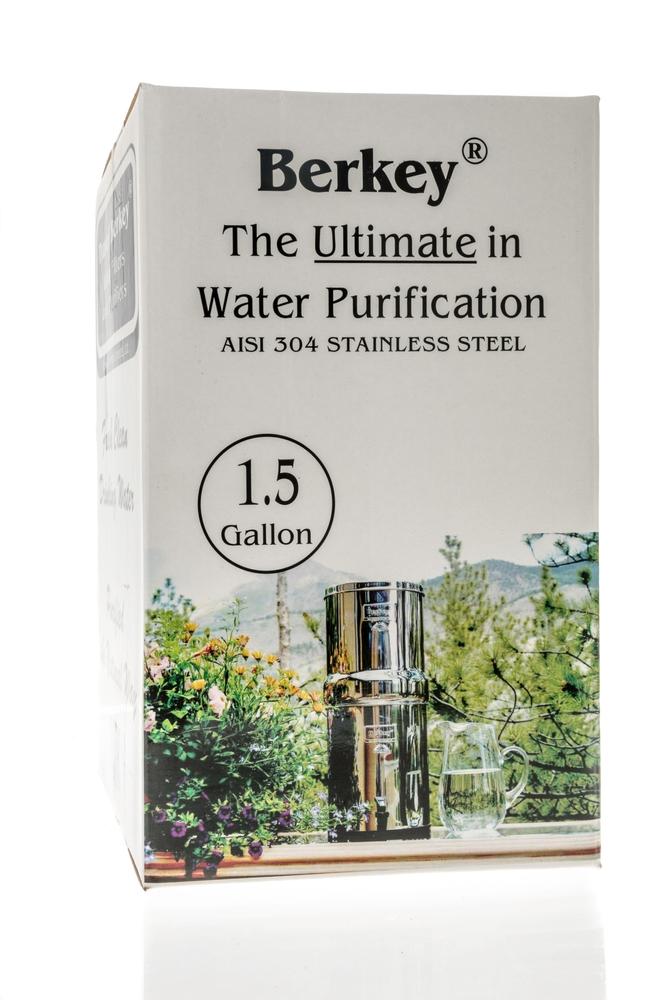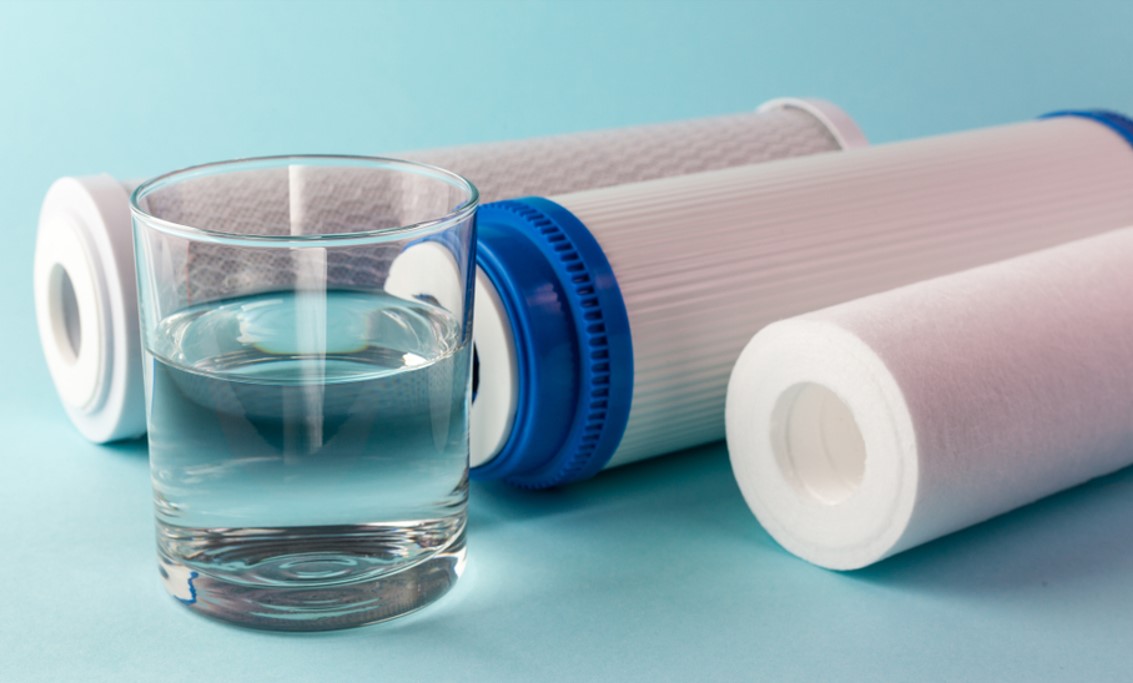ProOne (rebranded from ProPur in 2021) and Berkey are highly effective gravity water filters and great options to make the water at your home safe, clean, and delicious to drink.
Here, we’ll go over each gravity system’s upsides and downsides, including how they work, what they cost, the maintenance requirements, and more.
Conscious Water, Canada’s No. 1 Berkey water filter dealer, recommends these Berkey filters, even though they’re not perfect. Why? Because they’re pretty darn close.
How They Work
ProOne
The ProOne filter is a gravity water filter. This means that the natural force of gravity pulls the water down from a top compartment that filters down into the bottom: no plumbing, no cords, no batteries – just the simple laws of physics.
You can place it anywhere, with our recommended ideal places being the kitchen countertop or the dining room table.
ProOne also has fully-equipped home drinking water systems, which operate by a pressure mechanism. Pressure systems are similar to gravity filter systems.
In this system, perforated pipes or steel plates collect the filtered water and distribute the filtrate (the solution of water and harmful contaminants that the filter is designed to eliminate).
Berkey
The Berkey water system is also a gravity water filter. In terms of the mechanics of the filtration process, there isn’t any difference between the ProOne and the Berkey systems.
One thing to note is that most water pitcher systems are miniature versions of the gravity filtration mechanism.
What Do They Filter Out?
ProOne
According to an independent laboratory study, the ProOne G2.0 water filter removed several harmful contaminants. These include:
- Volatile and semi-volatile organic contaminants
- Heavy metals
- Pesticides
- Disinfectants and inorganic non-metallic contaminants (including chlorine, chloramine, and fluoride)
- Herbicides
- Microcystins
- Bacteria and viruses
- Radiological contaminants
- Microplastics
- Blue-green algae (parasites)
That’s a lot of junk in your drinking water that this system takes care of.
Berkey
The Berkey system goes above and beyond and removes a whopping 200+ contaminants. These include everything the ProOne removes plus a bevy of others, including rust, sediment, arsenic, and so many others, all of which have been tested by an independent lab.
What Do They Leave In?
Truly, the point of water filtration is to leave nothing in but pure, clean H20. So both systems are high-performing in this arena! Of course, no filtration system can remove everything, so there’s likely a little fluoride left at a level with negligible effect.
What Do They Cost?
ProOne
The ProOne water filtration systems vary dramatically in price. On the lower end are the portable water filters and water pitchers at $69.95 and $73.95, respectively.
The larger gravity filters range from plastic systems for as low as $139.95 and as high as $199.95 to larger metal systems that run up to $379.95. In terms of home pressure systems, these are much more extensive and cost up to nearly $3,000.
Berkey
Berkey water systems are affordable and have good longevity. They range in price based on the filter and container size, as well as the number of users Berkey recommends for those respective sizes.
For instance, a Travel Berkey System – designed for one to three people – is $327, whereas the Crown Filter at a six-gallon capacity runs for $478.
What Is the Required Maintenance for Both Systems?
ProOne
You can clean the ProOne filter using a simple white-vinegar-and-water method. Combine one part white vinegar and one part water using a sponge or soft cloth, rinse the filter thoroughly, and allow to air dry.
If you notice that the taste is off in your ProOne water, if the water flow rate differs from usual, or if you know that the filter is close to expiring, it’s time for a replacement filter.
Berkey
While Berkey has a few more maintenance requirements, they help contribute to its vast shelf life (much longer than the ProOne).
You should clean your Berkey stainless steel compartments monthly unless you are using the Black Berkey filter system, in which case every six months will do (or as filtration speed slows). You should clean the compartments by hand with mild dishwashing soap and warm water.
One feature of the Berkey water filter system is that you can throw the stainless steel chambers right in the dishwasher!
When should you replace your Berkey filter? Only every two to five years, believe it or not!
Overall Pros and Cons of Each System
ProOne
Pros
- Goes above and beyond NSF/ANSI standards as verified by an independent lab
- Removes many contaminants
- Can hold up to 3 gallons of water
- Is relatively affordable
- Has good emergency functionality
Cons
- Unwieldy
- Takes up a lot of counter space
- You have to refill it manually
- Slow filtration
- Standing water is susceptible to contaminants in and of itself, so the compartment/chamber needs to be changed regularly
Berkey
Pros
- Can hold up to 6 gallons of water
- Extremely long filter life
- Very affordable
- Many options for different price points
- Good emergency functionality
- Reduces or removes over 200 contaminants
Cons
- Takes up counter space
- Has to be manually refilled
- Slower filtration process
- Standing water susceptible to contaminants

Our Recommendation: Berkey Water Filters
Both of these filtration systems – the ProOne and the Berkey – are highly advanced and high-performing. When it comes to a neck-and-neck race, though, there’s a clear winner, and that’s the Berkey system.
The large variation in price points, the independent lab results, and the tremendous longevity of its filters makes Berkey the optimal choice for your clean water needs. Buy your Berkey filter today at Conscious Water, Canada’s #1 Berkey distributor!


